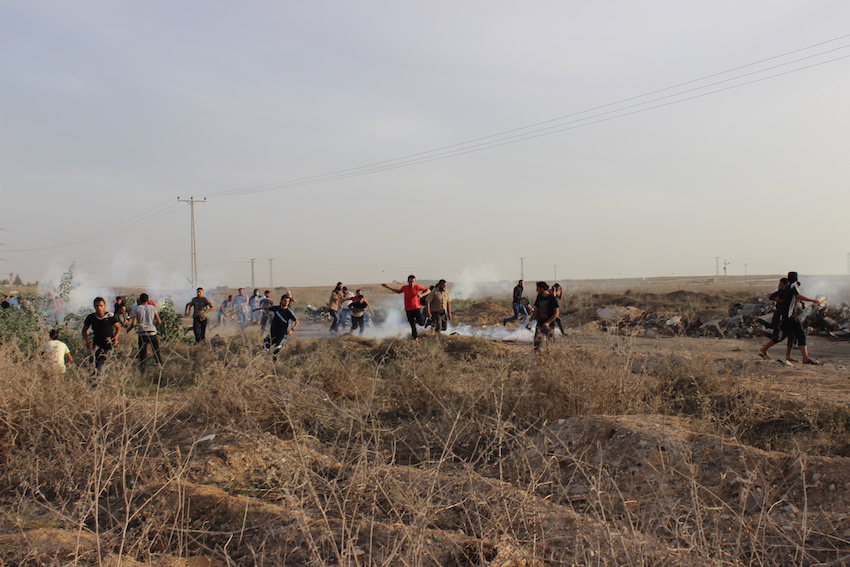Category: Gaza
-
Surviving in Khuzaa: life in the caravans
30th October 2015 | International Solidarity Movement, Gaza team | Khuzaa, Gaza Strip, occupied Palestine Almost a year and a half after the Zionist massacre of Gaza ended, most families in Khuzaa are still waiting for international aid and materials for reconstruction. Many of these families are living with their relatives or renting another…
-
65 Injured in Friday clashes in Gaza
23rd October 2015 | International Solidarity Movement, Gaza team | Gaza Strip, occupied Palestine Images from clashes today in Nahel Oz (Shijaia), Occupied Gaza strip. More than 20 Palestinians were injured in the Gaza strip today from a combination of live ammunition and teargas inhalation. Journalists and paramedics were targeted during the clashes, at least…
-
Gaza: between rebellion and sacrifice
22nd October 2015 | International Solidarity Movement, Valeria Cortés | Gaza Strip, occupied Palestine How much hopelessness, suffering, unpunished abuse, how much spilled blood can the human heart take before bursting? “All I possess in the presence of the death is fury and pride” Mahmoud Darwish Ahmed Al Sarhi was executed in cold blood yesterday…



